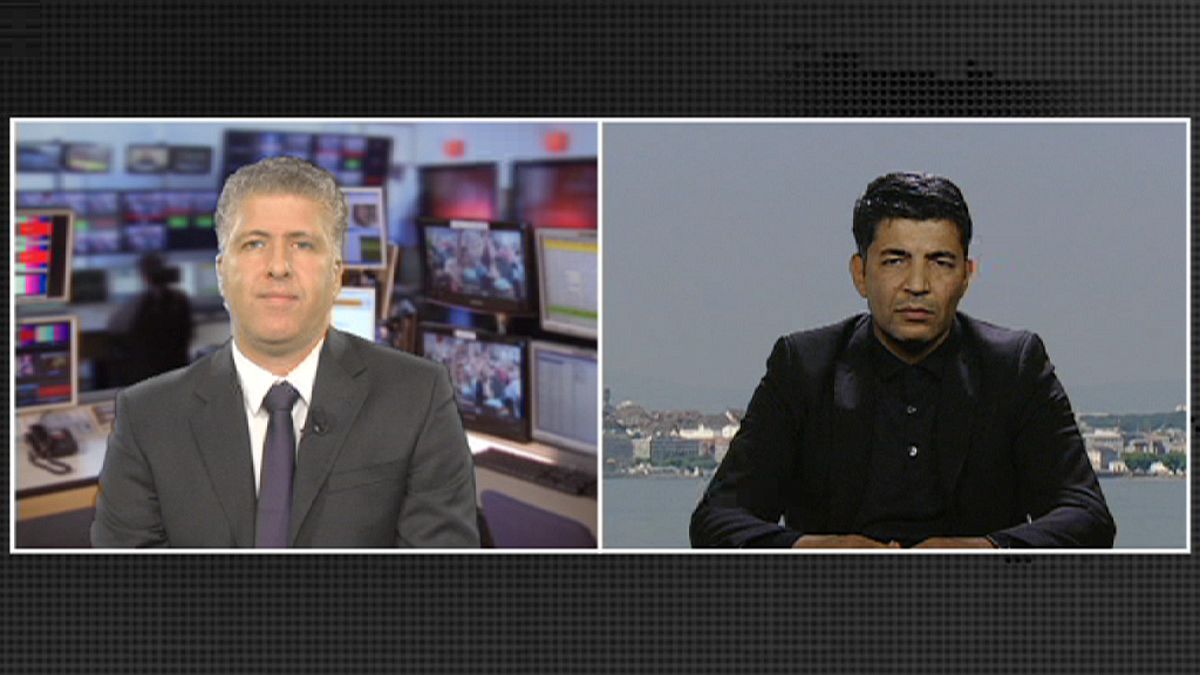As the dust settles between Gaza and Israel, each side is seeking to portray itself in a positive light after the ceasefire deal. In spite of the cost in bloodshed and destruction, Hamas celebrated last night, claiming all its demands had been met. Making a truce with Israel has given Hamas international legitimacy it has wanted for a long time.
Speaking in Cairo, Hamas leader Khaled Meshaal said the Palestinians had dealt Israel a great defeat, daring to stand up to what he called Israel’s “treacherous aggression”.
Israeli peace activist Uri Avnery told us the ceasefire after the conflict has made champions of Hamas.
“Hamas was boycotted by the international community, by the Arab world, and now heads of state are visiting the Gaza Strip for the first time. At this moment Hamas is the hero of the entire Arab world.”
Israel also claimed success, insisting it had delivered what Defence Minister Ehud Barak said were “serious blows” to Hamas, then working with Egypt’s Islamist leaders to help avert going into Gaza on the ground.
Israel’s Iron Dome interceptions of Palestinian rockets that could have brought more deaths also helped hold back heavier Israeli retaliation, but storm clouds remain for domestic and international politics.
Avnery said: “It is not an accident that this war started two months or three months before elections. The last war started a few weeks before elections.”
Palestinian Authority President Mahmoud Abbas, a Western-backed so-called “partner in peace”, has watched Hamas’s credibility rise in the Arab world while he received British and American diplomatic courtesy visits in the West Bank, though he was powerless in the Gaza drama.
Perhaps the greatest new prestige goes to Egyptian President Mohammed Mursi, credited with brokering the ceasefire. He won reprieve for the Palestinians in the Gaza Strip and so emerges a key regional player.
Euronews spoke to Hasni Abidi, an analyst in Arab world affairs and Director of the Study and Research Centre for the Arab and Mediterranean World in Geneva.
Fawzi Sadallah, euronews:
Yesterday Israel signed a truce with the Palestinian side after a week of bloody clashes. Who are the losers and the winners of this truce?
Hasni Abidi:
The winner is definitely the Hamas movement which is now emerging stronger than before, both militarily and diplomatically. It has imposed itself from the start as an important partner in the negotiations. But we can equally say that the Egyptian government, and also Mohammed Mursi, in spite of multiple internal difficulties, have succeeded in telling the world that they remain an indispensable player in the Arab-Israeli conflict. I do not believe that the Israeli Prime Minister (Benjamin) Netanyahu has come out on top in this affair, for he has not succeeded in achieving the objectives he sought. But the biggest loser is Mahmoud Abbas who has appeared more marginalised and excluded, more of an outsider than the three main parties: that is to say Israel, Hamas and the Egyptian authority.
euronews:
What do you think of those who say that the Egyptian position has not really evolved?
Hasni abidi:
It is true that the Egyptian position has not changed politically, but the novelty is the visit made to Gaza by the head of the Egyptian government, which is unusual compared to the time of former president Hosni Mubarak.
On the diplomatic front, Mursi is very conscious that he cannot go beyond what he has done, and does not possess the political and military capacity to do so. Nor can he get into conflict with Israel or the USA, especially as Egypt is currently carrying out important negotiations with the USA and international monetary institutions.
euronews:
Does this truce have a chance of evolving into a platform which will lead to serious peace negotiations?
Hasni Abidi:
This question is the very essence of the Arab-Israeli conflict. Unfortunately, the truce is not peace. The West, when it has mobilised itself to bring help to Israel and equally to the civilians of Gaza, must have forgotten that the basic problem is the Arab-Israeli conflict and that an important partner in this conflict also exists: that is to say the Palestinian Authority whose method based on a legal and peaceful approach by means of the United Nations has suffered failure, and has not succeeded in making itself heard, neither by the international community nor by the USA.
euronews:
How do you think the truce between Israelis and Palestinians will be affected by the repercussions from the Syrian crisis, and the tensions between Iran and the West around Tehran’s nuclear programme?
Hasni Abidi:
The fact that Iran has acknowledged having armed the fighters in Gaza either directly or indirectly by the intermediary of Hezbollah, shows that we are faced with a message adressed to the USA. A message which says: if at present you find it hard to manage with the Hamas movement, what would you do faced with Iran in case you decided to attack it? Therefore, on the international and regional front, Damascus and Tehran have both benefitted from the current tensions in Gaza.
